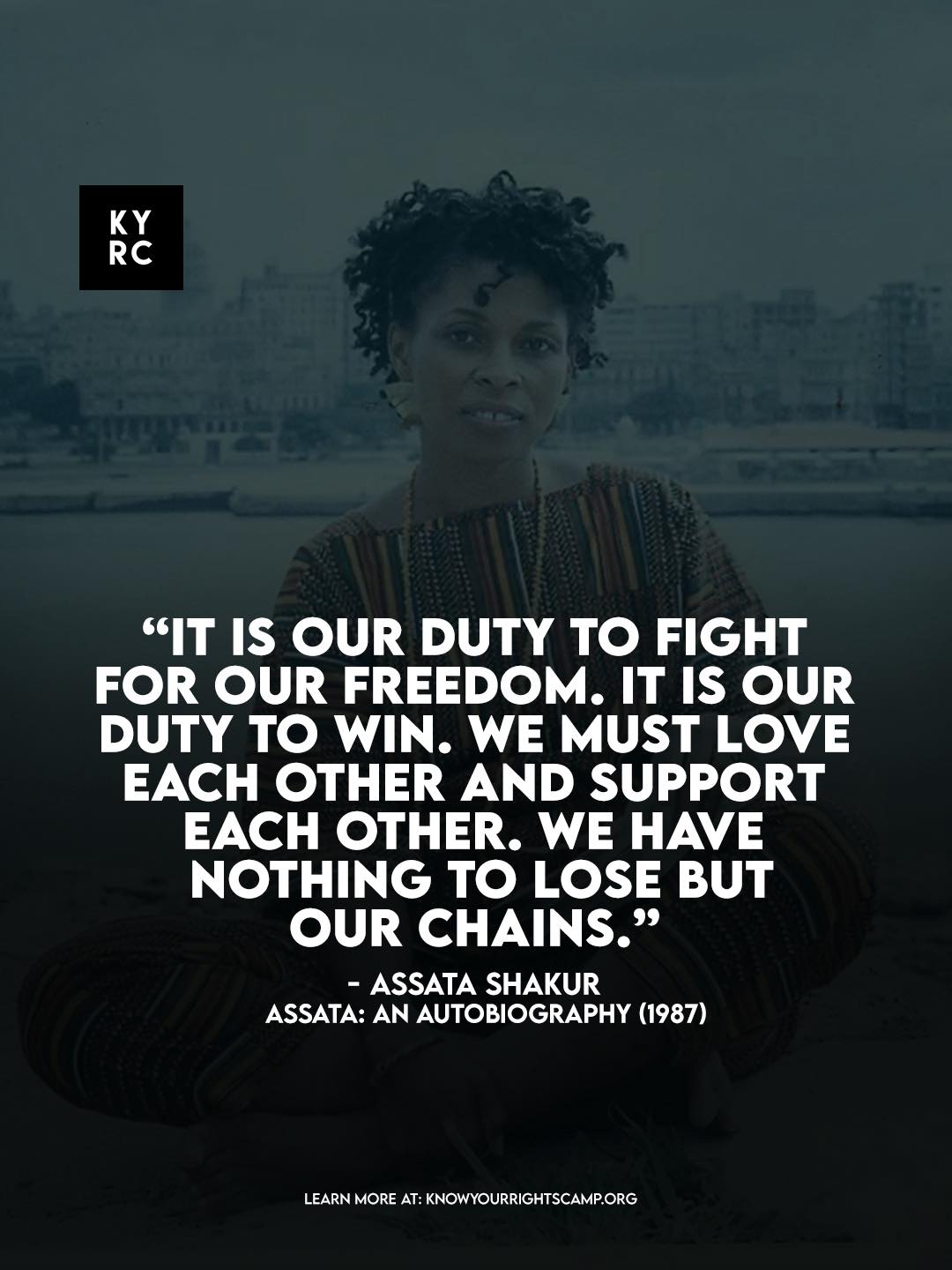
Book review: Assata: An Autobiography – Full Book Review, Chapter Summaries, and Key Quotes
Comprehensive review of Assata: An Autobiography by Assata Shakur. Includes chapter-by-chapter summaries, top 5 quotes per chapter, critical analysis, and scholarly counterarguments.
Highlights:
An Autobiography
Full Book Review
Chapter Summaries
Key Quotes
Book Review of "Assata: An Autobiography" by Assata
Shakur
Part I: Introduction
Assata: An Autobiography by Assata Shakur is a seminal text
in African American literature, political resistance, and radical feminist
thought. First published in 1987, the book traces Shakur’s journey from her
youth in the racially segregated United States to her political activism with
the Black Panther Party (BPP) and the Black Liberation Army (BLA). It also
documents her arrest, imprisonment, and eventual escape to Cuba, where she
lives in exile.
The autobiography serves as both a personal memoir and a sharp political
commentary on systemic racism, gender oppression, and the criminal justice
system in America. Shakur’s voice—urgent, poetic, and uncompromising—transcends
the page, making her story resonate across generations of readers and
activists.
Part II: Thematic Review
Resistance and Liberation
The central theme of the autobiography is the struggle for
liberation against systemic racism and oppression. Shakur’s descriptions of
police brutality, state surveillance, and structural inequality illuminate the
enduring challenges faced by African Americans.
Gender and Intersectionality
While often read as a political autobiography, the book is
equally important as a feminist text. Shakur highlights how Black women bore
the double weight of sexism and racism within both the broader society and
revolutionary movements themselves.
State Repression and the Criminal Justice System
Her narrative exposes the methods of repression—including
wrongful imprisonment, biased trials, and torture—used by state institutions to
silence dissent. This theme is central to contemporary conversations about mass
incarceration and prison abolition.
Memory, Identity, and Narrative
The autobiography blends history, poetry, and memoir. Shakur
uses her personal story to narrate the collective memory of Black resistance,
embedding her life in the broader arc of the African diaspora’s struggle for
freedom.
Part III: Critical Analysis and Reception
Strengths
- Authenticity and Voice: Shakur’s unapologetic tone adds
credibility and emotional power.
- Historical Documentation: The book doubles as a historical account of the
Black liberation struggle in the 1960s and 1970s.
- Inspirational Quality: Her resilience inspires readers to reflect on
resistance and justice.
Weaknesses / Scholarly Counterarguments
- Some scholars argue the autobiography overemphasizes state
oppression while underrepresenting internal conflicts within radical movements.
- Critics also question the reliability of memory in autobiographical
storytelling, suggesting the text should be read as both history and literary
narrative.
- Conservative commentators have criticized the book for its revolutionary
stance, framing it as radical propaganda rather than legitimate critique.
Chapter-by-Chapter Review with Highlights and Extracts
Chapter 1: On the Run
Top 5 Extracts:
“A police state is a state in which the government has
placed men in power who use their positions to control the lives of people.”
“I was born with a gun in my hand, metaphorically
speaking, because I was born Black in America.”
“My life was on the line every minute, every hour,
every day.”
“To be a black revolutionary in America meant to live
with your death warrant signed.”
“The police were the front line of the occupying army.”
Chapter 2: Growing Up Black
Top 5 Extracts:
“They didn’t have to teach me I was Black. The world
taught me that.”
“Segregation was in the air we breathed, the food we
ate, the streets we walked.”
“Even as a child, I knew that the police were not there
to protect me.”
“The South was honest about its racism. The North just
lied about it.”
“It wasn’t just about being poor—it was about being
Black and poor.”
Chapter 3: Awakening to Struggle
Top 5 Extracts:
“Malcolm made me see that Black was beautiful, but also
that Black was political.”
“To live without struggle is to live without dignity.”
“The system was rigged, and I wanted no part of its
lies.”
“It wasn’t about hating white people—it was about
loving Black people.”
“I had to learn that rebellion was survival.”
SEO Metadata
SEO Title: Assata: An Autobiography – Full Book Review,
Chapter Summaries, and Key Quotes
Meta Description: Comprehensive review of Assata: An
Autobiography by Assata Shakur. Includes chapter-by-chapter summaries, top 5
quotes per chapter, critical analysis, and scholarly counterarguments.
Focus Keywords: Assata: An Autobiography review, Assata
Shakur book summary, Assata Shakur autobiography quotes, Black Panther Party
memoir review, Black Liberation Army history
Tags: Assata Shakur, autobiography, book review, Black
Panther Party, Black Liberation Army, prison abolition, political memoirs,
African American literature

